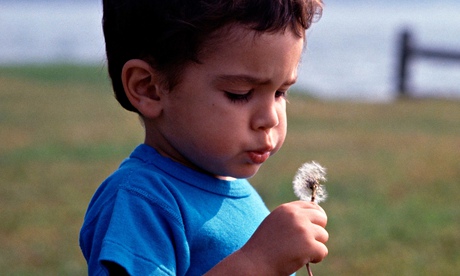
I am the mother of a boy child, as my Nigerian family would say. Having a boy means not having to worry about what to do with a girl. Here in the UK I have lost count of the number of times I have heard people assert that boys are good because they are emotionally "uncomplicated". Collectively, we might want to think long and hard about the ways in which our boys will have to pay for these constricted and restricting views of masculinity. What do boys lose when brought up to believe in macho ideals?
This week, the Harvard Business Review published findings on how senior executives manage that thing we all find difficult – the elusive work-life balance. The article, written by Professor Boris Groysberg and Robin Abraham, academics at Harvard Business School, found that both male and female business leaders continue to view family life as the woman's domain.
In interviews conducted over a five-year period with more than 4,000 participants, they note that "executives of both sexes consider the tension between work and family to be primarily a woman's problem". This despite the fact that "88% of the men are married, compared with 70% of the women. And 60% of the men have spouses who don't work full-time outside the home, compared with only 10% of the women. The men have an average of 2.22 children; the women, 1.67." The facts speak for themselves: for these high-achieving men, children and/or elderly parents are life problems that wives and girlfriends will have to wrestle with. While they are being honest, we too should admit that more than just a few thousand share this sexist view.
Striking the right balance between work and home life should be tricky for all, not just women. That it isn't seen as such reveals how we carry on buying into traditional ideas about performing gender. Men continue to be hemmed in by narratives telling them that emotion isn't their strong point and stoicism is manly. Being stunted emotionally and unable to share meaningfully with family and friends isn't what I want for my son. Not least because some men who subscribe to this version of masculinity pay with their lives. And that last line, sadly, isn't journalistic hyperbole but fact: men total 67% of all alcohol-related deaths, are between three and five times more likely to commit suicide, and are more prone to emotional isolation. Some men are trapped in a vicious cycle where emotional honesty and vulnerability cannot be communicated. Notions that our private lives are really only distractions from the real world of work exist as part of a continuum that enables and perpetuates these saddening statistics.
In its 2012 report looking at the reasons behind the gender gap in suicide rates, the Samaritans cites traditional notions of masculinity as a contributing factor. Stating that "men compare themselves against a masculine 'gold standard' which prizes power, control and invincibility", they explain what feminists such as Bell Hooks have been saying for years – that patriarchy hurts men too. Told from a young age that boys don't cry, many men are restricted by a culture that believes emotional openness and caring for your family are examples of girlishness. Rather than looking to blame feminism for making men feel as though they have lost their way, we need to talk instead of how sexist stereotyping cuts both ways, damaging all.
Boys aren't easier than girls. Raising someone not to be tempted by the privilege their "winkie" will be given in a society rife with gender inequality will be complicated. It will be worth it if I can raise my child to be free from the confines of traditional masculinity; that which continues to wreak havoc on so many lives, including that of "the man's man".

